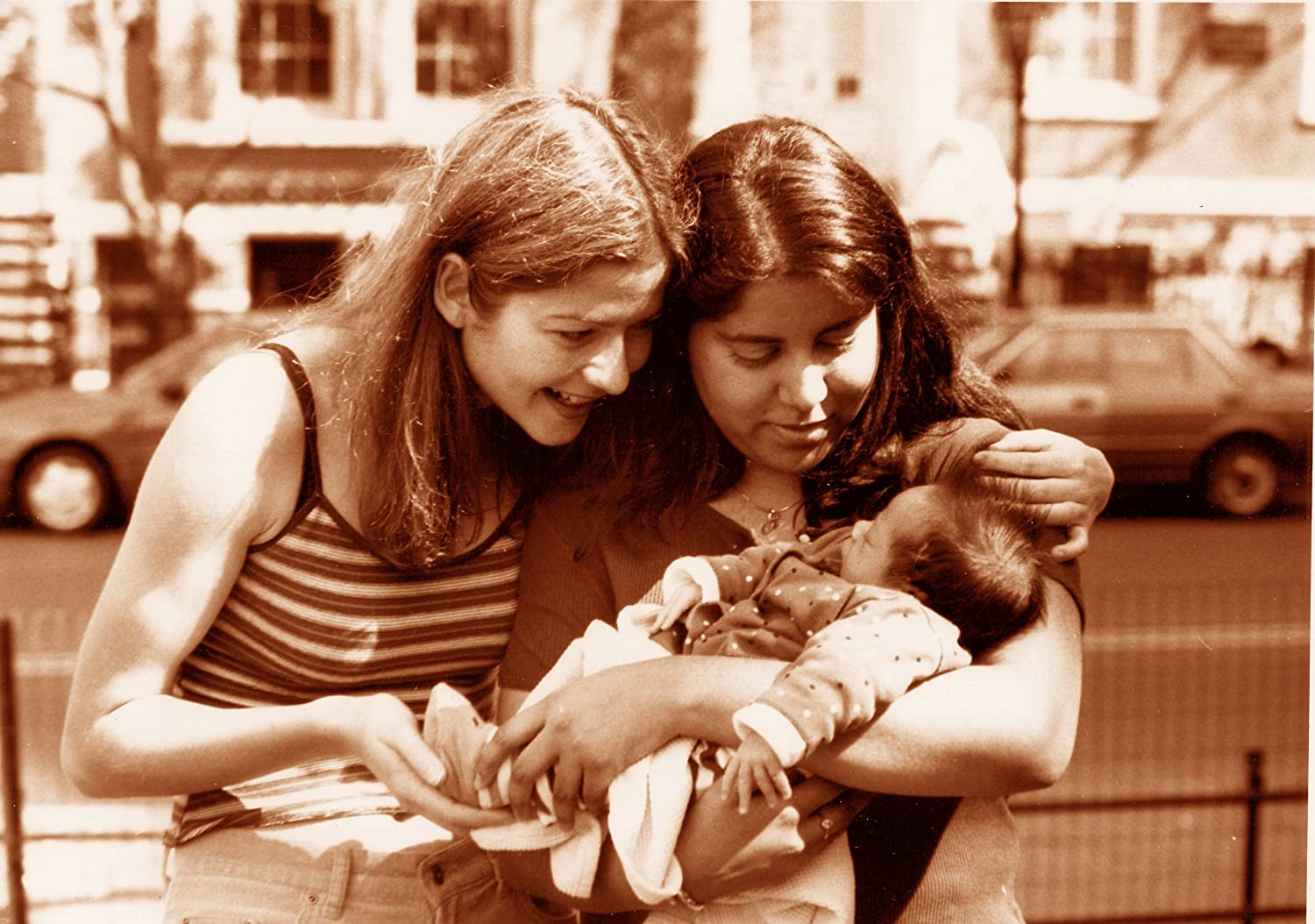Back to Asian Americans on Celluloid Timeline
Chutney Popcorn (1999)
Director: Nisha Ganatra
Writers and Producers: Susan Carnival and Nisha Ganatra
Length: 91 minutes
View the film on:
- https://www.hoopladigital.com/title/11061566
- https://play.google.com/store/movies/details/Chutney_Popcorn?id=BkTSRJd4s6A
- https://itunes.apple.com/us/movie/id578584309
- https://www.amazon.com/gp/product/B00AY7KRPM?tag=reelgood060d-20
- https://www.youtube.com/watch?v=BkTSRJd4s6A

Synopsis
In this family dramedy, Reena (Nisha Ganatra)—a young Indian American lesbian—has a mother, Meenu (Madhur Jaffrey), who disapproves of her sexual orientation and a “good” sister, Sarita (Sakina Jaffrey), who seems happy to fulfill her mother’s wish of having grandchildren. When Sarita discovers that she is unable to become pregnant, Reena offers to become the surrogate mother for her and her husband (Nick Chinlund). They accept the offer, but Sarita quickly begins to question her life goals, and asks her sister to stop the procedure. Reena is, however, already pregnant. By having this baby, Reena hoped that her relations with her family would improve. Unfortunately, it led to a breakup with her girlfriend Lisa (Jill Hennessy) and highly strained relations with Sarita. What happens when she approaches her due date? The film includes an amazing soundtrack by Karsh Kale.
Significance
This film explores three key themes that will resonate with many Asian Americans. The first is the generation gap between parents—particularly first-generation immigrants—who hold onto more traditional ideas about family, social mores and health and their more “Americanized” children. Chutney Popcorn celebrates the adaptability and resilience of Asian American families. Here, Meenu adjusted traditional rituals to Reena’s sexuality, and Sarita gradually moved away from traditional expectations after she discovered she could not become pregnant. In contrast, Reena gradually became more open to her mother’s practices and beliefs. The second theme is interracial relationships. In this film, Sarita and Reena are in relationships that raise questions about racism, and the roles that non-Asians can or should play in more traditional Asian practices. The third theme is the invisibility of Asian American queer experiences. It is perhaps significant that none of Reena’s lesbian friends are of Asian descent.
The filmmaker
Originally from Vancouver and raised in California, Nisha Ganatra is a Golden Globe-winning and Emmy-nominated director. A graduate of the NYU film program, Ganatra studied with Martin Scorsese, Barbara Kopple, and Spike Lee. Her first feature film, Chutney Popcorn (1999), won awards from L.A. Outfest, the Newport International Film Festival, the Ojai Film Festival, and the International Lesbian and Gay Film Festivals in Paris and San Francisco. Her second film, Cosmopolitan (2003), continued exploring the theme of interracial relationships. Equally at home in film and television, Ganatra has directed episodes of The Real World, Transparent, The Mindy Project, Brooklyn Nine-Nine, You Me Her, Dear White People, Fresh Off the Boat, and many other series. Her most recent films are Late Night (2019) starring Emma Thompson and Mindy Kaling, which explores racism, ageism and sexism in the television industry and, in particular, the writing room of a late-night talk show, and The High Note (2020) starring Dakota Johnson and Tracie Ellis Ross, which is about one woman’s struggle to become a music producer.
Back to Asian Americans on Celluloid Timeline
Further reading and listening
Official Websites
About Chutney Popcorn
- Asian Society, “Nisha Ganatra on Lesbianism, Moms, and Making Chutney Popcorn” (Interview with Michelle Caswell).
- Saturday School Podcast, “Season 1, Episode 9: Chutney Popcorn.”
- Anupama Arora, “Rituals of Queer Diaspora in Nisha Ganatra’s Chutney Popcorn.” South Asian Popular Culture, 5(1), 2007, pp. 31-43.
Asian American Queer History and Support Organizations
- University of Arizona LGBTQ Affairs, “Asian Pacific American LGBTQ Resources.”
- Amy Sueyoshi, “Breathing Fire: Remembering Asian Pacific American Activism in Queer History.” In Megan E. Springate (ed.), LGBTQ America: A Theme Study of Lesbian, Gay, Bisexual, Transgender, and Queer History. Washington, DC: National Parks Service.
- Kevin Truong, “For Asian Americans, Coming Out in 2019 Can Still Present Unique Challenges.” NBC News, June 17, 2019.
About Nisha Ganatra
- Center for Asian American Media, “Nisha Ganatra on Becoming One of TV’s Hottest Directors.” Ganatra answers questions about her career in 2016. This is a significant section on Chutney Popcorn.
- Leslie Combemale, “Spotlight June 2020: Nisha Ganatra, Filmmaker Focus on Inclusion and Parity.” Alliance of Women Film Journalists. This provides an overview of Ganatra’s career.
- Film Independent’s Coffee Talk Series: Making film and TV with Jeremy Podeswa & Nisha Ganatra. Recorded June 16, 2020, the two directors discuss their careers and their lives during the pandemic.
Entry Author: Eric Hung
Back to Asian Americans on Celluloid Timeline
